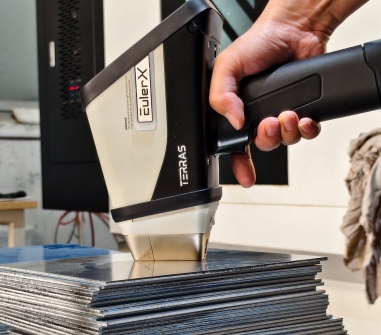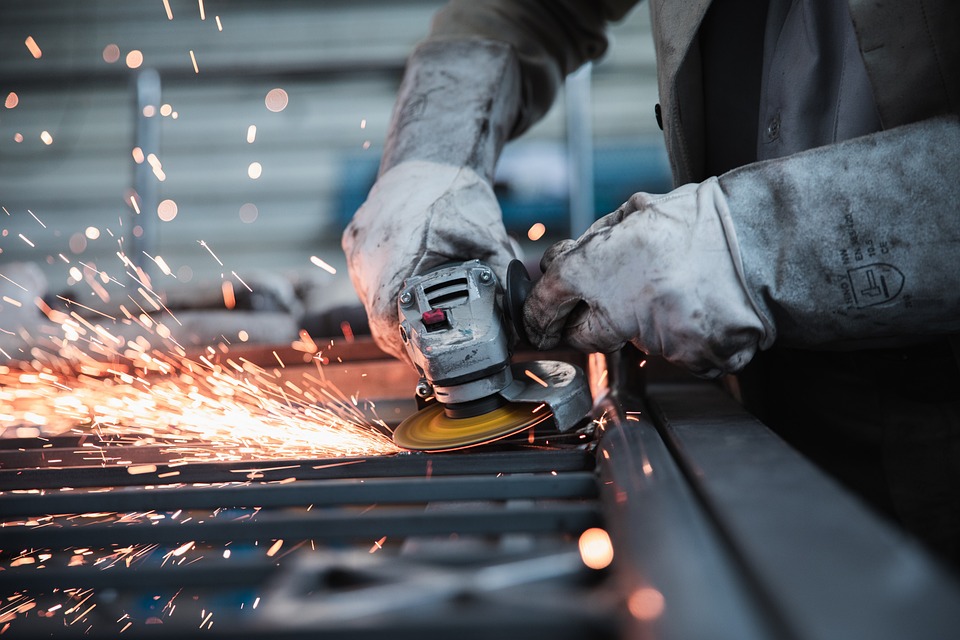
Alloy
A high-tech enterprise focusing on the development and application of X-ray technology products, committed to becoming a leading supplier of X-ray industrial testing solutions.
PMI Testing Machine: Revolutionizing Material Identification in Manufacturing
In today’s fast-paced manufacturing environment, the need for precision and efficiency is paramount. As industries scale, ensuring the right materials are used in the production process has become more important than ever. This is where the PMI Testing Machine steps in, offering revolutionary advancements in material identification and quality control.
What is a PMI Testing Machine?
PMI, or Positive Material Identification, is a non-destructive testing method that determines the composition of materials used in manufacturing processes. The PMI testing machine utilizes advanced technology, such as X-ray fluorescence (XRF) and optical emission spectrometry (OES), to accurately identify the elemental composition of metals and alloys.
These machines are designed to quickly analyze materials, offering real-time data that allows manufacturers to ensure that only the correct materials are used. This minimizes errors, reduces wastage, and ensures compliance with industry standards and regulations.

The Importance of PMI in Manufacturing
Manufacturers often deal with a wide range of materials that must meet specific industry standards, such as ASTM, ISO, or EN guidelines. Using the wrong material can lead to significant issues, ranging from safety hazards to costly product recalls. PMI testing provides an essential safeguard against these risks by ensuring that materials are correctly identified before they are incorporated into production.
For industries such as aerospace, automotive, construction, and electronics, material identification is particularly critical, as the integrity of products directly impacts their performance and safety. The PMI testing machine offers a fast, reliable, and non-invasive way to confirm material properties, ensuring that each component meets the required standards.
How PMI Testing Works
PMI testing machines function through several core methods, including:
X-ray Fluorescence (XRF): This technique involves directing X-rays onto the material and measuring the fluorescent radiation emitted. The intensity and energy levels of the emitted radiation are analyzed to identify the material’s elemental composition.
Optical Emission Spectroscopy (OES): OES utilizes an electrical discharge to excite atoms within the material. The emitted light is then analyzed, revealing the elemental makeup of the sample.
Laser Induced Breakdown Spectroscopy (LIBS): A more recent technique that uses a laser to vaporize a small amount of material, which is then analyzed for its elemental composition.
Each of these methods provides fast and accurate results, making PMI testing a critical tool in a variety of industries.
Advantages of PMI Testing Machines
Accuracy and Reliability: PMI testing machines offer precise material identification, ensuring that manufacturers can trust the data to make informed decisions. With the ability to detect even trace amounts of elements, these machines minimize the risk of using incorrect materials.
Non-Destructive Testing: Unlike other methods that may damage the material being tested, PMI testing is non-destructive, meaning the material can be reused after analysis. This saves both time and money, making it ideal for large-scale operations.
Cost-Effective: By identifying materials before they enter the production process, PMI machines help avoid costly mistakes, such as using the wrong materials or rejecting large quantities of materials after testing. This results in reduced waste and operational costs.
Real-Time Results: The speed at which PMI machines provide results allows manufacturers to make immediate adjustments to their processes. This reduces downtime and enhances productivity.
Portability: Many PMI testing machines are portable, allowing for on-site testing in environments where materials are stored or used. This flexibility can save time and resources, particularly in construction or fieldwork situations.
Applications Across Industries
The versatility of PMI testing makes it applicable across a broad spectrum of industries:
Aerospace: In the aerospace sector, materials must meet strict performance and safety requirements. PMI testing ensures the right alloys are used, preventing catastrophic failures in aircraft components.
Automotive: Automakers rely on PMI testing to ensure the integrity of parts, from engine components to structural materials, thereby improving vehicle safety and performance.
Construction: In the construction industry, the use of the correct material is essential for the longevity and safety of structures. PMI machines help verify that steel, concrete, and other materials meet the necessary standards.
Electronics: For electronics manufacturers, precision in material selection is vital to ensure product durability and performance. PMI testing guarantees that only the best materials are used.

Terras EulerX900 Handheld Alloy Analyzer
The EulerX900S alloy XRF spectrometer offers fast, non-destructive elemental analysis with high precision. Utilizing characteristic X-ray fluorescence, it efficiently identifies metals, alloys, and contaminants—ideal for quality control, scrap sorting, and environmental testing. Portable models feature rugged construction, intuitive touchscreen operation, and Wi-Fi for seamless data transfer. With detection ranging from Mg to U and customizable calibrations, it delivers laboratory-grade accuracy in the field.
Conclusion
The PMI Testing Machine is revolutionizing material identification in manufacturing by offering fast, accurate, and non-destructive analysis of materials. As industries continue to prioritize efficiency and safety, these machines play an essential role in ensuring that only the right materials are used in production processes. Whether for preventing costly mistakes, improving product quality, or maintaining regulatory compliance, PMI testing technology is poised to be a cornerstone in the manufacturing world for years to come.
Join Us
Subscribe to our email list for updates & promotions.



